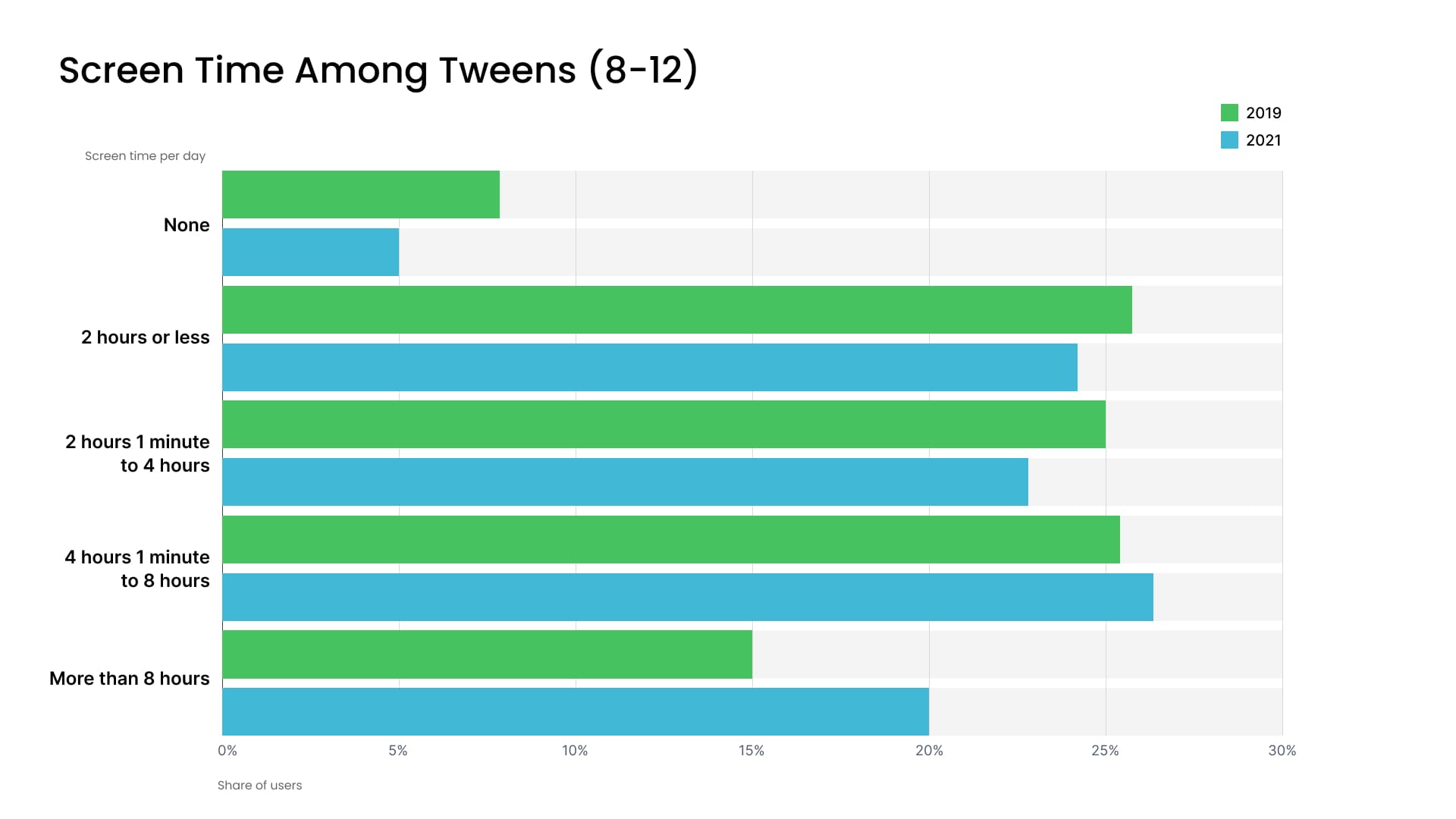The Hidden Dangers of Excessive Screen Time: How It Affects Your Sleep, Mood, and Longevity
In today’s digital world, it’s nearly impossible to imagine life without screens. Whether it’s smartphones, laptops, or TVs, screens have become an integral part of our daily routines. However, as much as they contribute to productivity, communication, and entertainment, excessive screen time is quietly wreaking havoc on our health. From sleepless nights to mood swings and even long-term health issues, the effects of too much screen time are much more than just a temporary inconvenience. In this post, we’ll dive into the surprising ways your screen habits are impacting your sleep, mood, and overall longevity.
1. Sleep: The Silent Casualty of Screen Time
Let’s start with the most immediate victim of excessive screen time – your sleep. The blue light emitted by screens has been shown to disrupt your circadian rhythm, which is the body’s natural sleep-wake cycle. This interruption occurs because blue light suppresses melatonin production, the hormone responsible for making you feel sleepy.
You’ve probably heard the advice to "put down your phone before bed," and for good reason. Studies have found that using devices like smartphones, tablets, or laptops just before bedtime can delay sleep onset, reduce sleep quality, and even shorten sleep duration. This leads to a vicious cycle where poor sleep makes it harder to focus the next day, and before you know it, you’re in the grip of chronic sleep deprivation.
Pro Tip: To combat the sleep-stealing effects of screen time, try setting a screen curfew. Aim to disconnect from all devices at least 30 minutes to an hour before you go to bed. Replace screen time with relaxing activities like reading or journaling to prepare your mind for rest.
2. Mood: A Rollercoaster Ride Fueled by Screens
It’s not just your body that suffers when you spend too much time in front of a screen – your mood takes a hit too. The constant bombardment of notifications, social media updates, and emails can create a sense of stress and anxiety, even if you don’t realize it. Research shows that excessive screen time can lead to increased feelings of anxiety, depression, and even irritability.
Take social media, for example. Scrolling through Instagram or Facebook often leads to comparison, jealousy, and feelings of inadequacy. You might find yourself thinking that everyone else has their life together, which can put a strain on your mental health. Similarly, the never-ending influx of work-related emails or news updates can create a sense of urgency and pressure, contributing to mood swings and burnout.
Pro Tip: If you notice your mood shifting after a heavy screen session, try a digital detox. A few hours, or even a full day, of disconnecting from all devices can help reset your emotional state and improve your overall well-being.
3. Longevity: The Long-Term Toll of Too Much Screen Time
It’s not just the short-term effects of screen time that should concern you – it’s the long-term consequences on your health and longevity. Research has linked prolonged screen time to a host of chronic conditions, including obesity, cardiovascular diseases, and diabetes. Prolonged sitting while using screens contributes to a sedentary lifestyle, which is one of the leading risk factors for these conditions.
Moreover, the stress and anxiety caused by screen time can elevate your cortisol levels, leading to chronic inflammation. This, in turn, accelerates the aging process and increases the risk of developing age-related diseases.
Pro Tip: To counteract the long-term effects of sitting and screen exposure, make it a habit to take regular breaks. The 20-20-20 rule is a great place to start: every 20 minutes, look at something 20 feet away for 20 seconds to reduce eye strain. Additionally, stand up, stretch, or take a walk every hour to keep your body active and your circulation flowing.
4. The Screen Time Paradox: Balancing Connection and Health
While excessive screen time can take a toll on your health, it’s important to recognize that technology itself isn’t inherently harmful. In fact, screens can be incredibly beneficial for personal growth, communication, and even physical well-being. The key lies in balance.
Instead of completely abandoning screens, focus on being more intentional with how and when you use them. Designate screen-free zones in your home (such as the bedroom) to create a healthier environment for sleep. Prioritize face-to-face interactions over virtual ones to foster deeper emotional connections, and incorporate mindful screen time into your routine to reduce its negative effects.
Pro Tip: Use screen time management tools to monitor your usage. Many smartphones offer built-in features that track screen time and allow you to set limits on certain apps. This can help you stay accountable and avoid mindless scrolling.

Excessive screen time may seem like a harmless part of modern life, but its impact on your sleep, mood, and longevity cannot be ignored. The good news is that small changes can make a big difference. By setting boundaries, taking breaks, and being mindful of your screen habits, you can protect your mental, physical, and emotional health in an increasingly digital world.
So, next time you find yourself glued to a screen, remember that your well-being is worth more than another episode or another scroll. Make the choice to reclaim your health and find a balance that works for you. Your sleep, mood, and longevity will thank you.







Comments